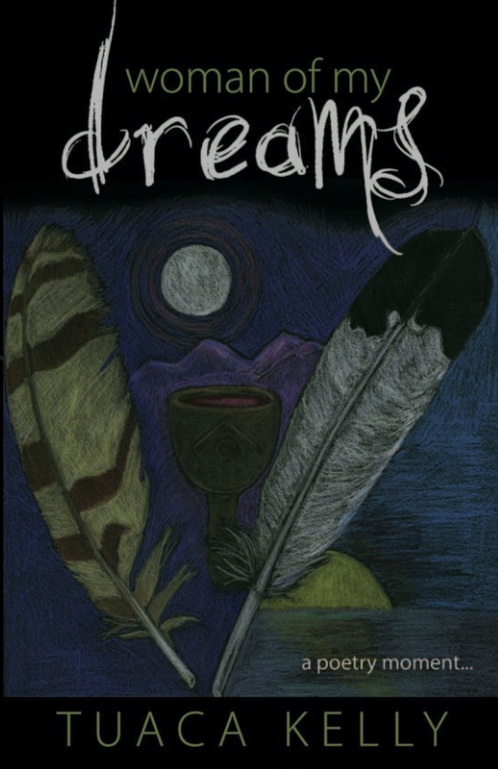|
Divorce can be emotionally and financially stressful, especially for those that lost sight of the friendship that brought them together in them first place. Sometimes one or both parties can let their pain body uncharacteristically lash out in lieu of non-violent communication or even a respectable argument. If that is the meter the relationship leading to divorce, things can get petty, nasty and vindictive. The supportive family members surrounding the divorcing couple have their feelings, desires, concerns and opinions too – even when they are deceased.
Meet Marilyn, an articulate, poised, warm-spirited professional woman. As she was positioning herself on the chair in my office, her deceased father was making himself known to me. His excitement for the opportunity to communicate with his daughter was intensifying by the millisecond as he waited for his moment to interject. This was a new experience for Marilyn. She was open, relaxed and paying attention. She recognized all the symbolic and literal information that was coming through. A significant shift in energy occurred when the topic of her relationship with ex-husband and divorce proceedings presented. At this point, her father moved in close and really put me to work. Looking out for his daughter, he expressed his concerns, especially as it pertained to his former son-in-law's behavior. Unfortunately, the ex-husband was a man that forgot he once loved the woman he wanted to spend the rest of his life with. Those close to Marilyn could see that. While Marilyn’s father let his feelings known, my guides pulled a memory from my own life to help me connect with 'one more thing' he wanted to express to his daughter. Though still in my office, with my arse in the chair, I was also inside a living memory: I am sitting in my junior high school social studies class. We're discussing the American Civil War (1861 to 1865). Our teacher, Mr. Dixon, warms through sharing a personal appreciation for this era. He's saying he was born and raised in a border state. As a boy, he often went hiking. One summer he happened upon a cave that contained relics from the war. The prize find therein was a sword. "I cleaned and polished it..." he's saying. As he is saying this, I'm seeing the sword, respectfully displayed in his hands… Another shift. The classroom is gone. Mr. Dixon is 'replaced' by the deceased father. The father is holding the sword, and he is very happy. Immediately I voice to Marilyn, "Your father says he is very happy you got the sword back! He's showing me a sword from the Civil War and he says he is very happy you got the sword back!" Marilyn became more animated and energetic than she had been. Now her personality was coming out! She explained, that her father was deeply fascinated by the American Civil War. One of his prized possessions from that period was a sword. Her ex-husband had had it and Marilyn worked very hard to get it back. I confirmed how important it was for her to have that sword in her keeping. She may not give a hoot about war memorabilia or weapons of any kind, though it was important for her to hang on to this one... and in time it would become more evident why. As we were winding down, Marilyn had a question about her family history. The response led her back home. "There's a diary…You have a diary that contains all of this information. It’s a diary, but not in a book... more like a collection of letters.... they were pen-pals? You have a box of letters in your closet?" Marilyn’s mind didn't take long to recognize the keepsake. I concluded: "What you are looking for is in those letters!" After her session and visit with her father, Marilyn felt peace, validation and confidence. She said as much then, as well as the following day in an e-mail adding news she located the collection letters, in a box, in the closet – then spent the night reading them. Within the pages of the 'diary' - an exquisite history of events meticulously constructed through the caring details of two loving pen-pals - she found, word for word, from the horse’s mouth, the information she was longing for. Closure. At the time of this writing, I’d be hard-pressed to recite facts about General Robert E. Lee and General Ulysses S. Grant that were reiterated in Mr. Dixon’s social studies class. I can tell you that Lee and Grant had deeply conflicting ideas about how to treat people and that Grant, alongside President Lincoln, sought to abolish slavery. Beyond that, not much else. What I do remember is how Mr. Dixon transformed before my eyes, when he recalled precious moments from his boyhood. It doesn’t mean I wasn't a 'good student' or that I wasn't paying attention, it just means I pay more attention to when people communicate what is valuable and meaningful to them. And those values, as also communicated by Marilyn’s father, can sally forth. Being the executor of a will - the person responsible for carrying out the requests of the decedent - can be very challenging, especially if bearer of that task is intimately involved. Its more than enough to cope with your own emotions and begin the rites of grief when someone transitions, let alone permit others the same grace; its altogether another thing to dive into rapid decision-making and organization of a life celebration, then shift focus and muster the strength and stamina required to be an executor. This is the time when friendships and hugs matter most.
I'd received Leah in my office a day or two before she returned for a second session. With a recently deceased relative, there was a lot going on in her family. Leah also had the massive role of executor in addition to her responsibility as a caretaker, provider and superwoman. The thing of is, Leah she wasn't particularly chummy and affectionate with the decedent. In life, they spent most of their relationship with a respectful tolerance of each other, rather than a strong bond motivated by what did bring them together: a common loved-one. Leah's first session was healing and insightful. The decedent showed up immediately with a brand of moxie that I imagine could put some people off. I, for one, appreciated her candor; It made for clear communication. In that space the two of them could work some very important things out. Her reason for returning soon thereafter was also highly cooperative and practical. You see, the decedent was an elderly woman, a notorious pack rat that had lived in the same 5,500+ sq. ft (510.+ sq. m) house for decades. The combination of those attributes has but one result: an overwhelming amount of stuff. Whose job is it to clean, sort through, dispatch items and find critical documents in that veritable labyrinth? The lone stoic overworked and emotionally taxed will executor. It was nice to see Leah so soon. She look more human, less pale and energetically lighter, She was alleviated during the fist session from many of life's situational stressors, though a burning question remained... Understanding the house of the decedent was filled with stacks of papers, magazines, stuff - like a George Carlin routine - stuff! it was easy to feel along with the near Sisyphean task - Leah wanted to know where the legal documents were. Before the question left Leah's lips, the decedent was answering. "It's in a Tupperware container," I said. The decedent was showing me her kitchen and her Tupperware container and where the Tupperware container was placed in the kitchen. I said as much to Leah. "She's showing me the kitchen and an old Tupperware container....It's in a Tupperware container in the kitchen." To state the obvious: the important legal documents needed to move forward with the descendant's last wishes were not in a safe-deposit box, a home safe, a lock-box, with a lawyer, in a file cabinet, in any filing system, not in a desk drawer, not tucked away in a Torah.... They were in the kitchen in an old (circa late 70's early 80's line) Tupperware container. Leah later confirmed to me that she found the hugely critical documents in Tupperware in the kitchen exactly where I was told to tell her she'd find them. During her sessions, Leah also made peace with the decedent. She gleaned insight from some of the personality conflicts between the two and cultivated understanding and appreciation for why she was asked/chosen to be the executor. It was healing, an incredible step in personal growth and helped bring closure to a significant era. To her own understanding and admission, Leah could have easily spent months of precious time, energy and resources, time away from family, career/income-earning, and pursuit of her own goals, while looking for a needle in a haystack while trying to determine what to do when things weren't so clearly laid out. Within only two valuable sessions, and consequently two great meetings with the decedent, Leah was alleviated with a tremendous sense of mutual compassion and appreciation, and she was renewed with support to move forward with great ease, clarity and confidence. |
The
|
inspired + integrity + in service + in love
Deity Music Union + Health Culture Amsterdam - Est. 11.11 - KVK: 64527824 - Amsterdam
© 2001 - 2024
Deity Music Union + Health Culture Amsterdam - Est. 11.11 - KVK: 64527824 - Amsterdam
© 2001 - 2024
Proudly powered by Weebly

 RSS Feed
RSS Feed





